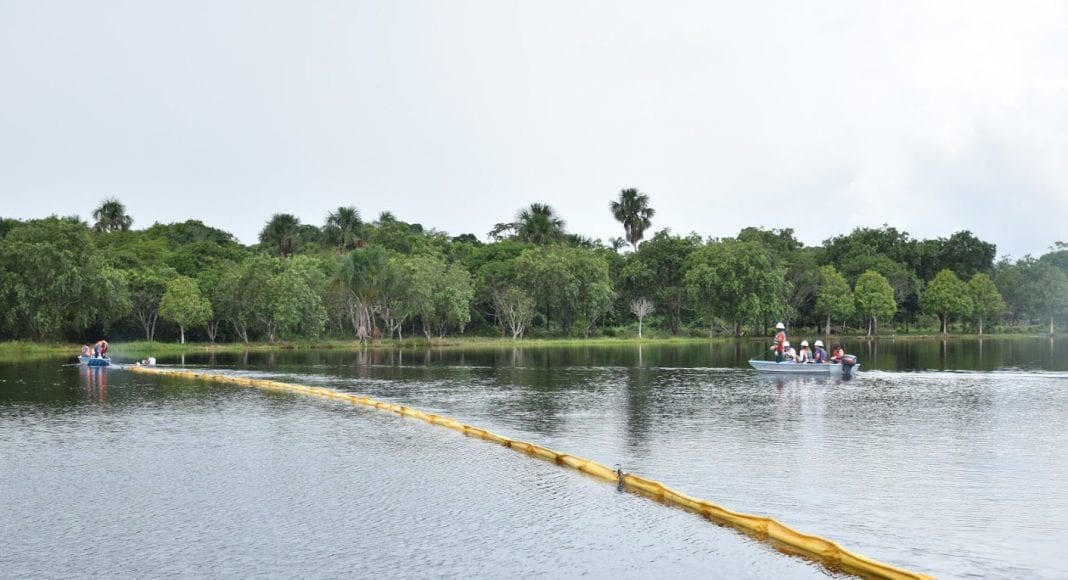Oil companies operating in Guyana would be liable for all damages caused by an oil spill incident they cause, including the costs of removal and the restoration of the environment as far as practicable, under proposed legislation tabled in Parliament.
The Oil Pollution Prevention, Preparedness, Response, and Responsibility Bill 2025, tabled by Prime Minister Mark Phillips on April 28, seeks to establish a national legal framework for preventing, preparing for, responding to, and compensating damages from oil spill incidents in Guyana’s territory. The proposed law follows growing public concern over oil spill risks and gained urgency after a spill off the coast of Tobago.
The bill proposes to designate the Civil Defense Commission (CDC), an existing body, as the competent national authority for supervising spill response coordination and impact mitigation. It would also formalize the National Oil Spill Committee within the CDC, tasking it with overseeing the establishment of an Incident Command System and the execution of training and drills.
When passed, the National Oil Spill Committee, through the CDC, would be mandated to prepare and publish a National Oil Spill Contingency Plan to guide coordination and response operations. Companies responsible for a spill would be required to promptly notify the CDC in writing, and the Commission would be expected, where practicable, to make information about such an incident publicly available.
Following the completion of oil spill removal operations, the Environmental Protection Agency (EPA) would be empowered to instruct responsible parties to undertake actions to restore the natural environment. Liability under the bill would extend beyond cleanup to damages including injury to property and natural resources, economic losses such as lost taxes and royalties, and broader environmental impairment.
The legislation would also establish an Oil Spill Incident Board of Inquiry to evaluate claims brought by affected parties.
Oil operators would also be required to maintain and demonstrate financial assurance to the satisfaction of the CDC and in accordance with existing laws. Failure to do so could result in the withholding or revocation of a vessel’s clearance under the Shipping Act, or the suspension of petroleum production and deepwater port licenses. Penalties would also apply for failing to notify the authorities of a spill.
In effect, the proposed legislation seeks to create a comprehensive framework defining the responsibilities of oil operators, outlining coordination structures, and enabling compensation and environmental restoration in the event of a spill. It would institutionalize national oversight and preparedness at a time when Guyana’s oil production capacity prepares to soar to some 900,000 barrels per day.
The bill is still to be debated in Parliament, following which it will go to a vote for passage.



